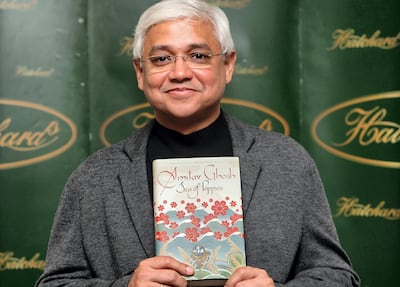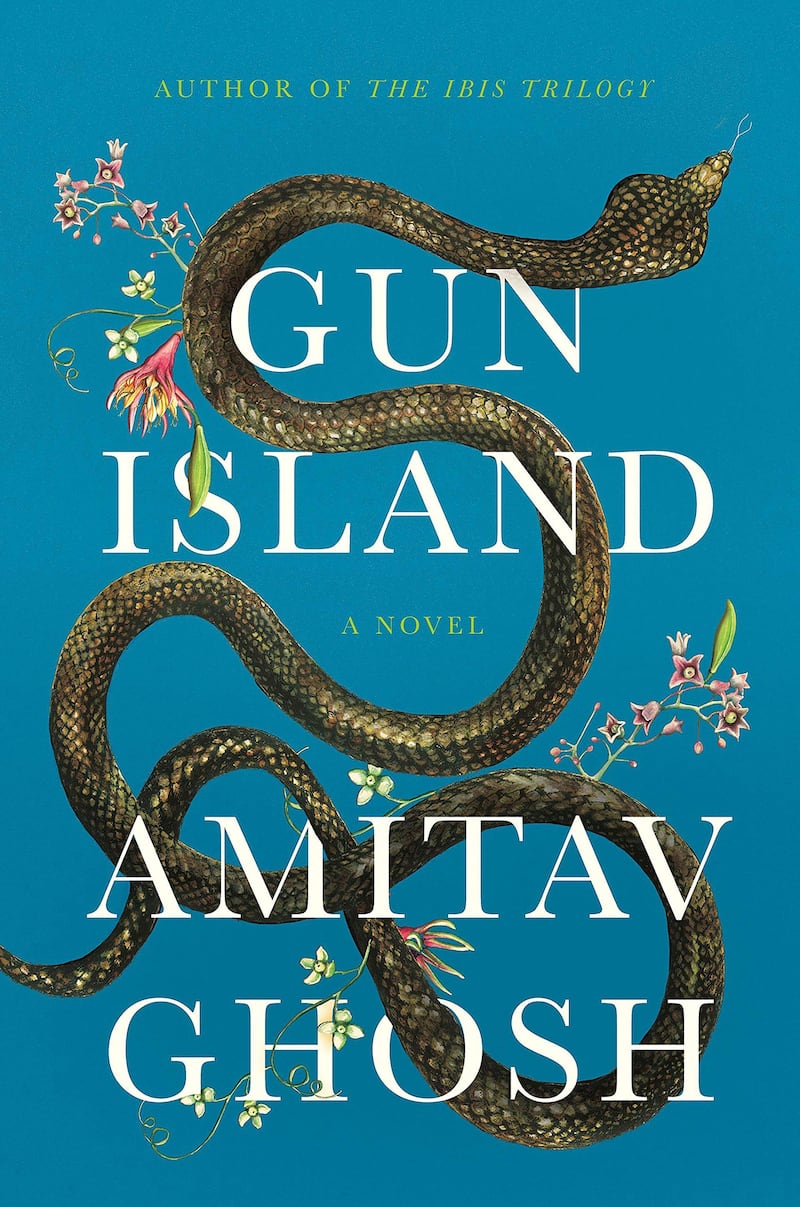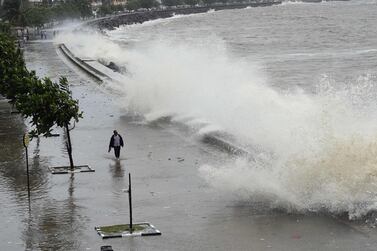When Amitav Ghosh tells me that the world in 2019 is profoundly uncanny – in the improbable, mysterious, unsettling sense of the word – I ask whether his heightened feelings are connected to the strange atmosphere of his new novel. In Gun Island, a Bengali folktale is the starting point for a book where floods, wildfires and migration give the impression of a post-apocalyptic fable happening in the present.
"It's very interesting you should suggest that," he counters. "The section with the Californian wildfires I wrote before they actually happened in 2018. There is a part in Gun Island where they come near the museum and my characters are evacuated. That exact scenario happened as I had envisaged it. So that's the uncanniness I'm talking about. As a writer, you often have these strange experiences – but this one was particularly peculiar."
In fact, Gun Island is shot through with odd visions and premonitions like this; a professor predicts the death of her daughter, an orphaned boy foresees dolphins beached on the banks of a river. The quiet narrator Deen, a dealer in rare books, is told exactly the obstacles that will be put in his way on his intriguing, globetrotting adventure where the effects of climate change on people and places are felt in almost unbearable, life-changing ways. This is a less a dystopian novel than an urgent survey of our world right now; as one of his characters says: "We're in a new world now. No one knows where they belong, humans or animals."
"That's an absolutely key line; it's what Gun Island is really about," says Ghosh. "Look out of your window right now – do you actually see anyone who belongs to that exact place? Do we know why we are where we are? If you write about these destabilising times, there's no escaping a feeling that you're not quite at home, that you live at the edges of the familiar. I certainly feel that deep within myself."
Of course, over a three-decade, nine novel career, Ghosh has always explored big issues that have preoccupied him during stints in India, Bangladesh, Sri Lanka and, now, New York. His last book was a collection of essays called The Great Derangement, which asked, among other things, why novelists weren't writing about climate change. Is Gun Island the response to his own question, then?
"Well, I don't actually think you can write a novel to an agenda; writing is more complicated than that – if the story doesn't come alive in your mind then it doesn't live. You can't write a novel with a didactic intent because it will have the opposite effect.

"What I would say is that Gun Island has all my passions, interests and obsessions within its pages. Virtually everything I've written has been about people moving, migrating, carried away from one place to another. I've always written about natural environments and engagements with animals going right back to the elephants in The Glass Palace. And yet it's very different to anything I've done before."
That's true; though it still has some of the trademark Ghosh writing – precise, exact, thoughtful – it feels pacier, snappier. There are mysterious symbols for Deen to interpret which could come straight from a Dan Brown novel, weird coincidences which somehow make chilling sense. Whisper it, but did Ghosh – usually quite a serious author – actually have fun writing this?
"I wouldn't call it fun exactly, but it was written in a shorter period of time than any other of my books –because the story really took hold of me. And I do really want people to enjoy this book, while alerting them to the world around them. It is about the real world, the reality of my life and many other people spread out across the planet; it's not speculative."
And Ghosh's real achievement in this book is to make the reality of migration, climate and technology seem inescapable from one another, while still, as another character says, allowing for "stories to tap into dimensions beyond the ordinary". There's a keen sense that the effects of a "natural" catastrophe don't exist in a vacuum which ends when the aid agencies leave, but ripple across the decades.
"Absolutely," he agrees. "While I was writing this book, I visited migrant camps in Italy, and they were largely Pakistanis displaced by the Jhelum floods in 2015. I must admit, I'd never even heard of them and neither had my Pakistani friends. But there was this catastrophic event, and – this is the way that climate and technology intermesh – people who once might have once gone to another Pakistani city now look at their cellphones and work out ways that they might set out for Europe."
It's fascinating to spend some time discussing these issues with Ghosh. During our conversation we take on Brexit, UFO sightings – "I think we just can't accept there might be other forms of intelligence" – how trees communicate, the Bengali community in Venice... Ghosh is a deep thinker and reader, yet in Gun Island it does cohere into a compelling narrative. And, in the book as in his life, everything comes back to the Sundarbans, the cyclone-prone mangrove forest in West Bengal and Bangladesh.
"Once you start reading and talking about climate change, and being connected to this vulnerable part of the world, you can't not be affected,” he says. “It's a place which will always be in my imagination and memory; precarious but resilient."
Shorthand for the environment and characters in Gun Island – and maybe the world in 2019.
Gun Island (John Murray) is published on Thursday.







